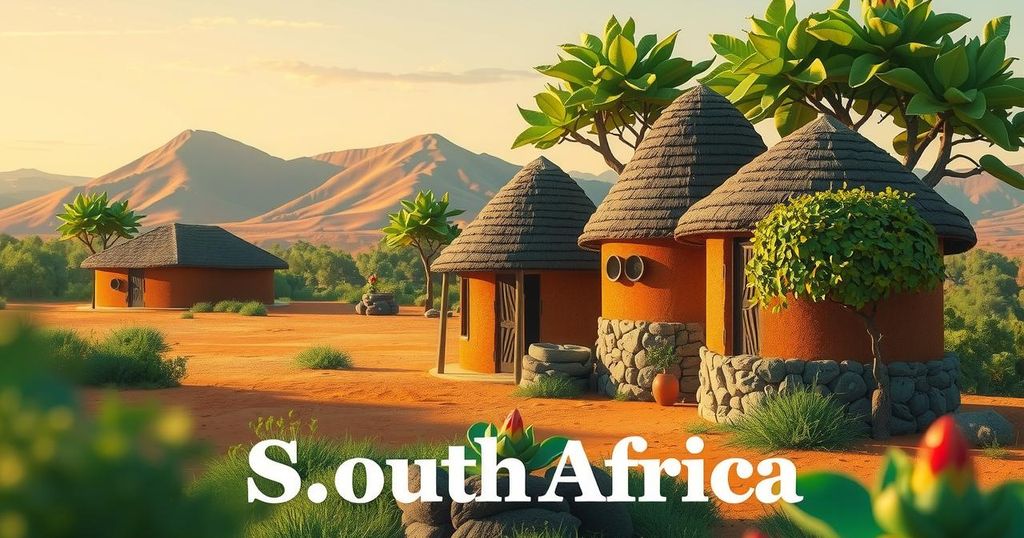Cyril Ramaphosa to Visit White House Amid Afrikaner Refugee Controversy

South African President Cyril Ramaphosa will visit the White House on May 21 amid the emerging controversy over Afrikaner refugees gaining U.S. status under a Trump-era policy. Tensions are palpable, especially after recent remarks by both Ramaphosa and U.S. officials regarding the discrimination faced by Afrikaners. The meeting aims to reset diplomatic relations but occurs against a backdrop of debates over land reform and racial dynamics in South Africa.
South African President Cyril Ramaphosa is set to visit the White House next week, as announced by his office on Thursday. This meeting, scheduled for May 21, comes just days after the U.S. welcomed its first group of White South African refugees granted status under a policy initiated during the previous Trump administration. Ramaphosa intends for this visit to be a pivotal opportunity to rejuvenate the strategic relationship between the United States and South Africa.
The backdrop of Ramaphosa’s upcoming visit is surrounded by rising tensions linked to the arrival of 59 Afrikaners, a group from South Africa’s White community. Upon their arrival in Washington, U.S. Deputy Secretary of State Christopher Landeau mentioned that these individuals have faced “egregious discrimination” back in South Africa. Further, State Department spokesperson Tammy Bruce reiterated their vulnerable status, citing unjust racial discrimination.
However, Ramaphosa has firmly dismissed the Trump administration’s portrayals, calling them “not true,” as reported by BBC News. During a recent statement, he labeled those departing for the U.S. as “cowardly,” suggesting that fleeing rather than facing challenges symbolizes cowardice.
To provide context, Afrikaners are descendants of Dutch settlers in South Africa, having resided there for around four hundred years. Afrikaans, their language, is one of South Africa’s twelve official languages, stemming from Dutch origins. The Afrikaner community established the apartheid regime in 1948, essentially enshrining racial segregation and political domination for the White minority.
With the dismantling of apartheid in 1994, and Nelson Mandela’s rise as the nation’s first Black president, the political landscape changed significantly—although it remains fraught with issues today. Despite the end of institutionalized racial segregation, studies indicate that White South Africans maintain a considerably higher standard of living than their Black counterparts, underlining ongoing disparities.
Ramaphosa’s signing of a contentious new law in February, permitting land seizure without compensation, has sparked fears among Afrikaners. While authorities clarify the law is designed to improve land usage, many perceive it as targeting White landowners. Interestingly, the South African government has categorically rejected claims of racial motivation behind land confiscations or discrimination.
The rising violence against farmers and claims of threats faced by Afrikaners underscore the complexity of the situation. Notably, U.S. Deputy Secretary Landeau has stated that these threats are particularly egregious, yet the South African government attributes them to crime rather than racially motivated factors. This has stoked considerable debate on the nature of such violence, with figures like Trump and Elon Musk suggesting a narrative of “White genocide” in that context.
An executive order signed by Trump specifies prioritizing the resettlement of Afrikaners, even as other groups found their access to similar programs restricted. Those eligible for refugee status under this order must meet particular conditions: they must be of South African nationality, belong to the Afrikaner ethnicity, or identify as part of a racial minority, and must be able to articulate experiences of or fears regarding persecution.
As President Cyril Ramaphosa prepares for his upcoming visit to the White House, the backdrop of Afrikaner refugees seeking asylum further complicates South Africa’s relationship with the United States. Amidst accusations of discrimination and tension surrounding land reform, the outcomes of this meeting could significantly influence diplomatic ties moving forward. Moreover, the narrative surrounding the African descendants and Afrikaners remains a divisive issue both locally and internationally.
Original Source: www.cbsnews.com







